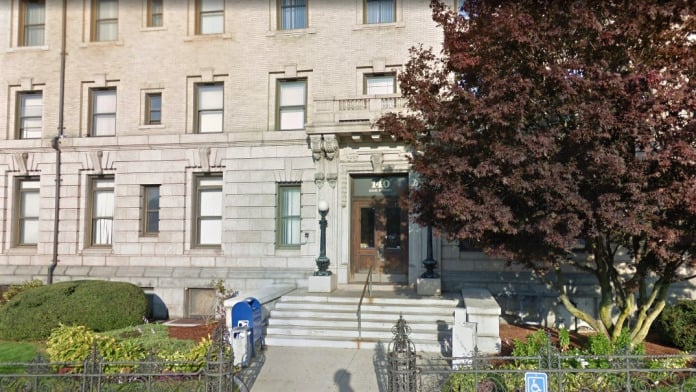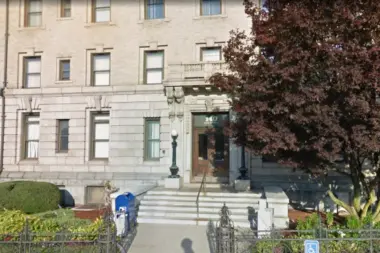About South Bay Community Services – Springfield Mental Health Clinic
South Bay Community Services – Springfield Mental Health Clinic is located in Springfield, Massachusetts. This is an outpatient clinic that provides services to children, adolescents and adults who are experiencing struggles with their mental health. They also offer comprehensive substance abuse counseling services. If it’s found that you need more robust services like detox, inpatient treatment or residential care, you’ll get referred to different resources in the community that might be able to better serve you.
They accept policies from most major insurance providers. This includes Medicaid, Medicare and VA benefits programs such as TRICARE.
Community-Based Care
Although their outpatient services take place in their Springfield clinic, healthcare providers also go out into the community to ensure clients receive the support they need. For example, their partnerships with local school districts allow counselors to deploy right into the school system if needed.
Counselors can also meet you at home, in foster homes, at churches, and in other community spaces if you feel more comfortable receiving care outside of the office. Literally meeting you where you’re at in your recovery journey is one of the many ways treatment is personalized and individualized to your recovery needs.
Strengths-Based Treatment Model
South Bay Community Services employs what they call a strengths based treatment model. Under this treatment model, you’ll be encouraged to explore your strengths and tap into them. You’ll be encouraged to build a strong sense of self esteem and focus fully on how you can develop your positive qualities into the dominant behaviors that help you navigate life. You’ll explore and discover your strengths through one-on-one counseling.
Evidence-Based Therapy
You’ll find that their approach to substance use disorder treatment is heavily rooted in evidence based practices. For example, you’ll be supported by diagnostic assessments to determine exactly what health struggles are at play and if underlying mental health struggles exist.
Trauma informed care is used alongside individual therapy, couples counseling, family therapy and medication management if needed. Through their counseling services, you’ll work through the emotional layers that are impacting your struggles, helping you get to the root cause of the challenges you’re facing.
Latest Reviews
Rehab Score
Gallery


Other Forms of Payment
Medicaid is a state based program that helps lower-income individuals and families pay for healthcare. Medicaid covers addiction treatment so those enrolled can use their coverage to pay for rehab. When a program accepts Medicaid the client often pays very little or nothing out of their own pocket.
Private insurance refers to any kind of healthcare coverage that isn't from the state or federal government. This includes individual and family plans offered by an employer or purchased from the Insurance Marketplace. Every plan will have different requirements and out of pocket costs so be sure to get the full details before you start treatment.
Self-pay involves paying for treatment out of your own pocket. You can use savings or credit, get a personal loan, or receive help from family and friends to fund your treatment. If you don't have insurance or your insurance plan doesn't cover a specific program, self-pay can help ensure you still get the care you need.
Financial aid can take many forms. Centers may have grants or scholarships available to clients who meet eligibility requirements. Programs that receive SAMHSA grants may have financial aid available for those who need treatment as well. Grants and scholarships can help you pai for treatment without having to repay.
Medicare is a federal program that provides health insurance for those 65 and older. It also serves people under 65 with chronic and disabling health challenges. To use Medicare for addiction treatment you need to find a program that accepts Medicare and is in network with your plan. Out of pocket costs and preauthorization requirements vary, so always check with your provider.
Addiction Treatments
Levels of Care
Their strength-based treatment model is designed to address each individual’s unique areas of need and ability. The dedication and skills of South Bay clinicians reflect this approach. They have a diverse team of highly trained professionals and clinicians that consist of physicians, nurse practitioners, social workers, behavioral health counselors, and other Master’s level behavioral health professionals. Trained in a variety of specialty areas including substance abuse, psychiatric illness, and dual diagnosis, patients can rely on the Outpatient Counseling Services team to fully devote their time, and care to the individuals specific needs.
Drug and alcohol addiction often takes a heavy toll on one's body. Over time, a physical dependence can develop, meaning the body physiologically needs the substance to function. Detox is the process of removing drugs and/or alcohol from the body, a process that can be lethal if mismanaged. Medical detox is done by licensed medical professionals who monitor vital signs and keep you safe, healthy, and as comfortable as possible as you go through detox and withdrawal.
Completing a drug or alcohol rehab program shouldn't spell the end of substance abuse treatment. Aftercare involves making a sustainable plan for recovery, including ongoing support. This can include sober living arrangements like halfway houses, career counseling, and setting a patient up with community programs like Alcoholics Anonymous (AA) or Narcotics Anonymous (NA).
Treatments
The goal of treatment for alcoholism is abstinence. Those with poor social support, poor motivation, or psychiatric disorders tend to relapse within a few years of treatment. For these people, success is measured by longer periods of abstinence, reduced use of alcohol, better health, and improved social functioning. Recovery and Maintenance are usually based on 12 step programs and AA meetings.
Addiction is a highly complex problem, and drug rehab in Massachusetts is often necessary to address it. These programs treat physical, mental, and relational issues that are involved. Treatment empowers individuals to manage these issues without the use of drugs.
Many of those suffering from addiction also suffer from mental or emotional illnesses like schizophrenia, bipolar disorder, depression, or anxiety disorders. Rehab and other substance abuse facilities treating those with a dual diagnosis or co-occurring disorder administer psychiatric treatment to address the person's mental health issue in addition to drug and alcohol rehabilitation.
A combined mental health and substance abuse rehab has the staff and resources available to handle individuals with both mental health and substance abuse issues. It can be challenging to determine where a specific symptom stems from (a mental health issue or an issue related to substance abuse), so mental health and substance abuse professionals are helpful in detangling symptoms and keeping treatment on track.
Opioid rehabs specialize in supporting those recovering from opioid addiction. They treat those suffering from addiction to illegal opioids like heroin, as well as prescription drugs like oxycodone. These centers typically combine both physical as well as mental and emotional support to help stop addiction. Physical support often includes medical detox and subsequent medical support (including medication), and mental support includes in-depth therapy to address the underlying causes of addiction.
Programs
Adult rehab programs include therapies tailored to each client's specific needs, goals, and recovery progress. They are tailored to the specific challenges adult clients may face, including family and work pressures and commitments. From inpatient and residential treatment to various levels of outpatient services, there are many options available. Some facilities also help adults work through co-occurring conditions, like anxiety, that can accompany addiction.
Young adulthood can be an exciting, yet difficult, time of transition. Individuals in their late teens to mid-20s face unique stressors related to school, jobs, families, and social circles, which can lead to a rise in substance use. Rehab centers with dedicated young adult programs will include activities and amenities that cater to this age group, with an emphasis on specialized counseling, peer socialization, and ongoing aftercare.
Clinical Services
Whether a marriage or other committed relationship, an intimate partnership is one of the most important aspects of a person's life. Drug and alcohol addiction affects both members of a couple in deep and meaningful ways, as does rehab and recovery. Couples therapy and other couples-focused treatment programs are significant parts of exploring triggers of addiction, as well as learning how to build healthy patterns to support ongoing sobriety.
Their team of CBHI (Children's Behavioral Health Initiative Services) clinicians focuses on strengthening the family and making it possible for a child to remain in the home. Their interventions are highly structured, tailored to the family’s strengths, and designed in collaboration with all stakeholders. They offer a variety of specialized services, programs, and highly trained professionals to properly assist the child with their exact behavioral health concerns.
Group therapy is any therapeutic work that happens in a group (not one-on-one). There are a number of different group therapy modalities, including support groups, experiential therapy, psycho-education, and more. Group therapy involves treatment as well as processing interaction between group members.
In individual therapy, a patient meets one-on-one with a trained psychologist or counselor. Therapy is a pivotal part of effective substance abuse treatment, as it often covers root causes of addiction, including challenges faced by the patient in their social, family, and work/school life.
Trauma therapy addresses traumatic incidents from a client's past that are likely affecting their present-day experience. Trauma is often one of the primary triggers and potential causes of addiction, and can stem from child sexual abuse, domestic violence, having a parent with a mental illness, losing one or both parents at a young age, teenage or adult sexual assault, or any number of other factors. The purpose of trauma therapy is to allow a patient to process trauma and move through and past it, with the help of trained and compassionate mental health professionals.
Amenities
-
Private Setting
Accreditations

The Commission on Accreditation of Rehabilitation Facilities (CARF) is a non-profit organization that specifically accredits rehab organizations. Founded in 1966, CARF's, mission is to help service providers like rehab facilities maintain high standards of care.
CARF Accreditation: Yes
Contact Information
140 High Street
Suite 230
Springfield, MA 01105